The battle to control what's fact and fiction in The Elder Scrolls' lore
What constitutes canon is being reinterpreted by ardent fans.
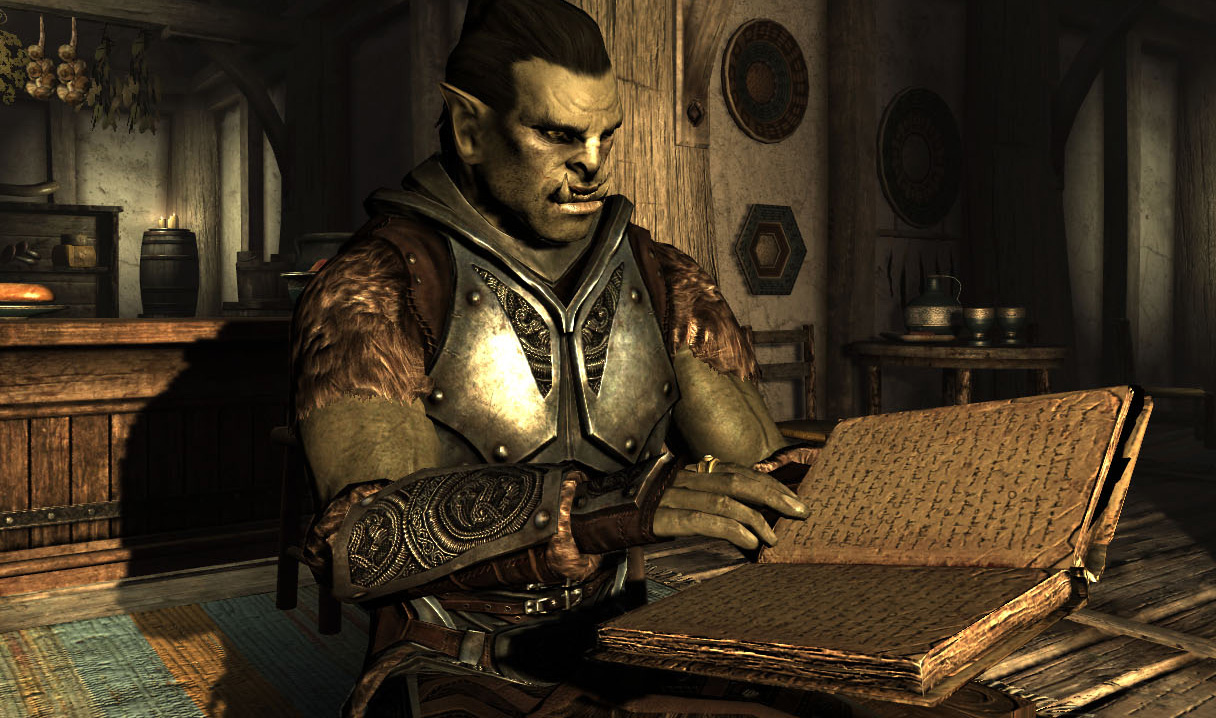
Imagine a cataclysm so potent that it entangled the very threads of time, creating multiple realities and solidifying every choice made by 100,000 players across those realities canon, for all time. That is the Warp in the West, which treated all six endings of Daggerfall—the second game in the Elder Scrolls series—as equally canonical, even though they clearly contradict each other. This is not how it works with other games, which may give players choices, but ultimately decide on one "true" outcome for the sake of lore and sequels. But when it comes to lore, The Elder Scrolls isn't like other games.
Unlike the devs of most games with expansive backstories, the Bethesda team has few concrete answers to offer
Complex, competing Elder Scrolls histories like these are argued over by the fictional scholars of Tamriel, and provide just as much material for the Elder Scrolls lore community to pore over and debate endlessly in real life.
The Warp in the West may seem difficult to comprehend, but it's just one of the many fantastical events that make up the Elder Scrolls lore. Fans who want to know more can always plead with Bethesda to crack open the lore bible. Unlike the devs of most games with expansive backstories, though, the Bethesda team has few concrete answers to offer; in fact, they prefer to keep much of the lore ambiguous, which makes The Elder Scrolls canon difficult to grasp for newcomers and intoxicatingly complex the deeper you get. There are incredibly heavy documents that teach enthusiasts how to start understanding The Elder Scrolls' history, like How to be a lore buff, which is so dense it even comes with its own guide.
It would all be complicated enough without fans and creators writing about Tamriel on the internet, but they do that too, of course. Former Elder Scrolls writer and designer Michael Kirkbride, for example, still writes the occasional lore-related texts at the Elder Scrolls fansite The Imperial Library—a cause of endless debates on their canonicity by its community.
Kirkbride, who was the writer and designer behind the Warp in the West, told me in a Skype interview that the Elder Scrolls team did not want their personal voices to interfere with the series' lore. "When we were rejigging the worlds post-Daggerfall, we made a commitment—the writers, designers, developers—to never release anything into the world that wasn't written by somebody that lived there," he said. "The voice of the author should not come in there, and dictate what's true or not. It just shuts down conversation [around the game's lore]."
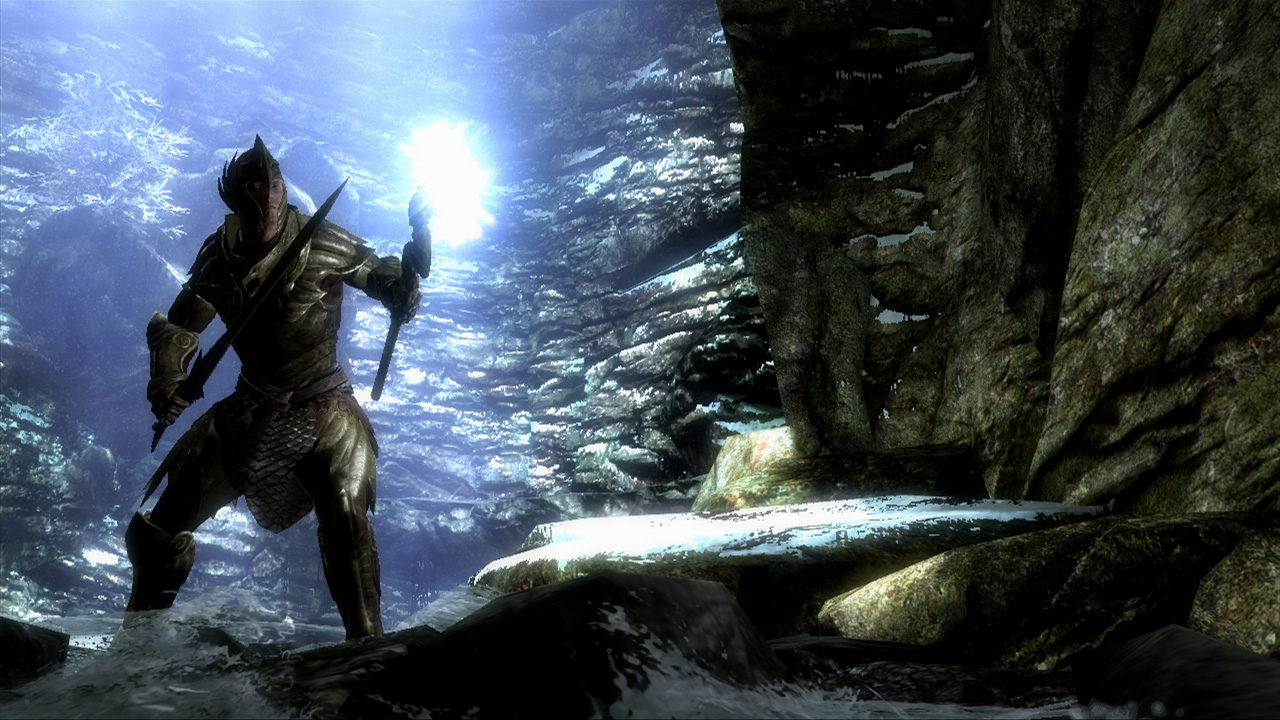
It hasn't worked out that simply, of course, given how many writers and designers have contributed to the series over the past two decades, forming an extensive tapestry of history. Some of their stories may contradict each other, or contain differences that can't be reconciled. And trying to deal with these discrepancies officially has been controversial. One example: In a book in The Elder Scrolls Online, Bethesda's said that wildly different descriptions of Cyrodiil in books in past Elder Scrolls games had been mistakes. Mistakes by the fictional authors of those books. "The use of the phrase 'endless jungle' to describe Cyrodiil appears to be an error in transcription. Close study of the original, badly faded manuscript reveals that the phrase was miscopied," said the ESO book.
A genius retcon? Maybe. But this was scoffed at by many Elder Scrolls fans, with many accusing Bethesda of "breaking the lore." One quote from the FAQ section of /r/teslore sums up this unique philosophy: "There can't be an objective corpus of 'truths' that could serve as a summary of all lore."
Keep up to date with the most important stories and the best deals, as picked by the PC Gamer team.
Some fans remain skeptical. As redditor GigaTomato said on /r/ElderScrolls, "I'm sorry r/teslore wants to belive (sic) that their fanfictions are true and canon. Many of them spend more time talking about Vivec's dick than the actual lore which many of them are shockingly clueless about."
Others, like UrQuan from the official Elder Scrolls forum, are gradually coming round to the idea.
"'Accurate' is not a word that should ever be associated with TES lore," they wrote. "The lore is built up from many different sources, none of which are completely reliable, and some of which contradict each other. The only way you can ever be completely sure about how an event happened is if you were there and experienced it (and even then you might still be wrong about what really happened). It has always been much like the real world that way."
To allay concerns that The Elder Scrolls Online is abandoning its lore-intensive roots, the developers came up with the Loremaster's Archive, an online collection of scholarly in-character blog posts, and penned by the Loremaster of the Elder Scrolls Online himself, Leamon Tuttle. It's also another effort by Bethesda to tackle the many questions fans may have through the personalities of the Elder Scrolls, keeping responses in character. Take for instance this blog post, which is an interview with "famed Argonian 'historian' Jee-Lar" as he tackled questions posed by the Elder Scrolls community, or a text unearthed from deep within the archives that delves into the colonization of Hew's Bane.
"Many works of fantasy present a top-down description of the world as it is. In other words, creators describe the world in detail from the perspective of an omniscient storyteller," shared Tuttle. "TES lore goes the opposite direction; we develop the world from the ground up. So, every aspect of the lore comes from a character in Tamriel. These characters—like people in real life—have unique perspectives that provide a glimpse of the world as they understand it. Their words might carry some truth, but that 'truth' is often skewed by personal biases and it's always incomplete."
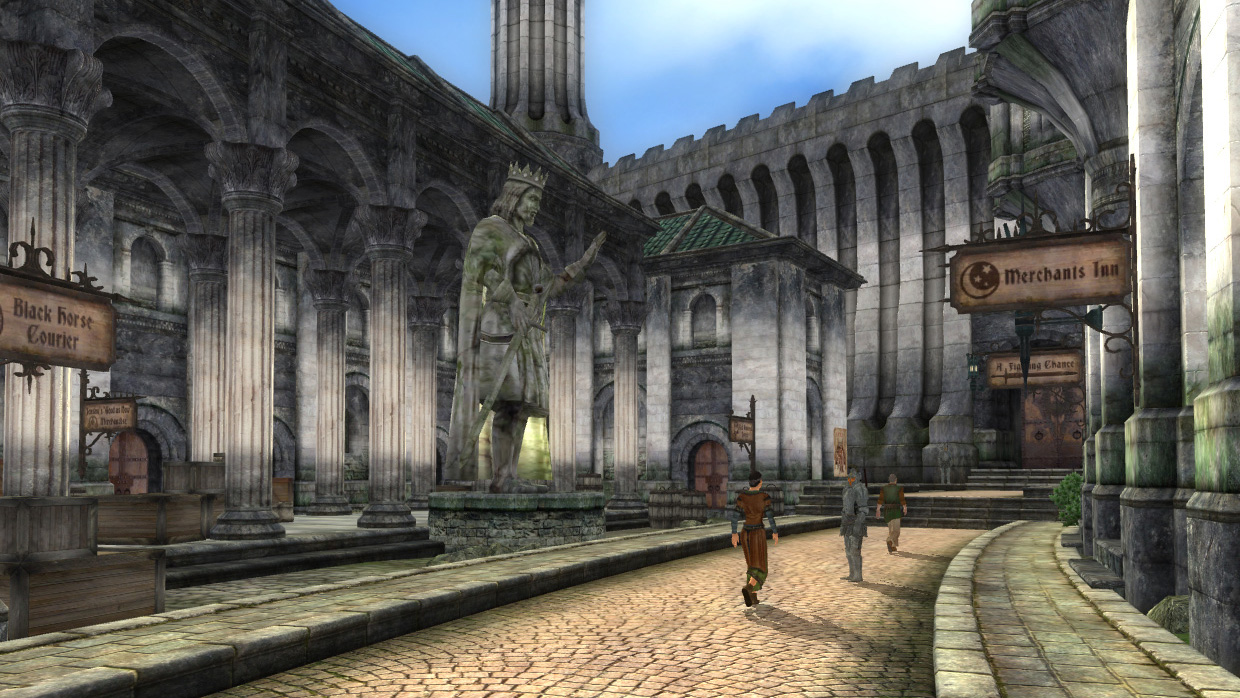
That's why some of the most fervent fans of The Elder Scrolls are particularly zealous about the lore, scrutinizing every morsel of information to interpret its centuries-long backstory. And there is just so much to delve into. For instance, are there LGBTQ+ characters? What happened to the mysterious dwarven elves known as the Dwemer, whose entire race simply vanished overnight? And why are there so many skulls kept in people's homes?
Discussions flourished on the /r/teslore subreddit and the official Bethesda forums. Elder Scrolls fan fiction writers also thrived, because Bethesda encouraged them to share their works. From the earliest days of The Elder Scrolls' development fans and developers would freely discuss the intricacies and theories of The Elder Scrolls lore in forums and message boards. Tucked within the official Elder Scrolls forums as well are also handy editorial guides and even writing prompts to help aspiring writers.
One of the most prominent fan lore projects is The Uutak Mythos, a comprehensive write-up on the obscure isle of Yneslea, an island mostly relegated to inconsequential footnotes in in-game tomes. The Uutak Mythos is written by Redditor Al-Hatoor with help from Kirkbride himself. It falls under what the community labels 'apocrypha', used to refer to quality fan writings "that were executed with technical skill" while expanding upon the lore.
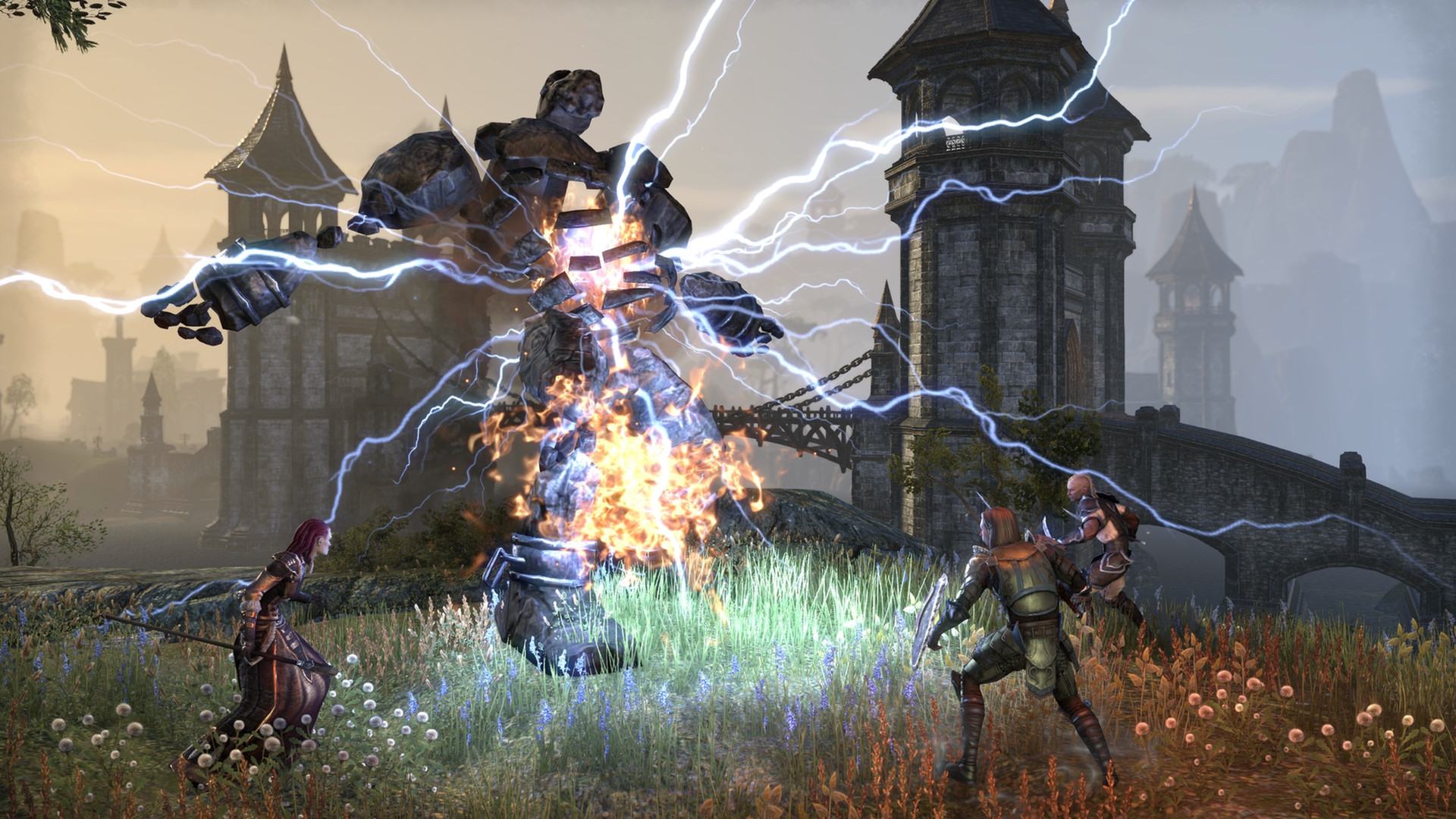
Many of them spend more time talking about Vivec's dick than the actual lore which many of them are shockingly clueless about
Redditor GigaTomato
These efforts add to what The Elder Scrolls lore community deem collaborative worldbuilding. "Imagine the TES franchise as a blank sheet of paper," wrote Al-Hatoor on a Reddit thread. "The developers then begin to sketch a great map on this paper, filled with continents and oceans but they do not place every label on the map, leaving large spots on the continents and in the seas depressingly empty. It is our job as the fans to use world-building to fill in those empty spots and give them their own meanings, their own stories to make them much more enjoyable and fascinating."
Cementing this ethos is an out-of-game comic book script written by Kirkbride called C0DA, which is set far after the conclusion of Morrowind. Exemplifying his belief that The Elder Scrolls should be open-source, C0DA is about how anyone should have free rein over their interpretation of The Elder Scrolls lore. "There's this part of me that wishes that a lot of licenses would just disappear, and we could have armies of modders and communities create their own games set within the same universe and consider them all canon," he said.
As Loremaster, Tuttle prefers to read these fan works at a distance, especially those that are consistent with the lore but at odds with his personal thoughts on the subject. "The Elder Scrolls community enjoys tremendous freedom when it comes to interpreting the lore, and that's absolutely by design. A big part of that is keeping the focus on questions rather than answers, and resisting the urge to set things in stone," added Tuttle. "Obviously, I have my own ideas about the deep mysteries of The Elder Scrolls, but even as the Loremaster, my opinions are not authoritative. The Elder Scrolls lore is bigger than any one of us."
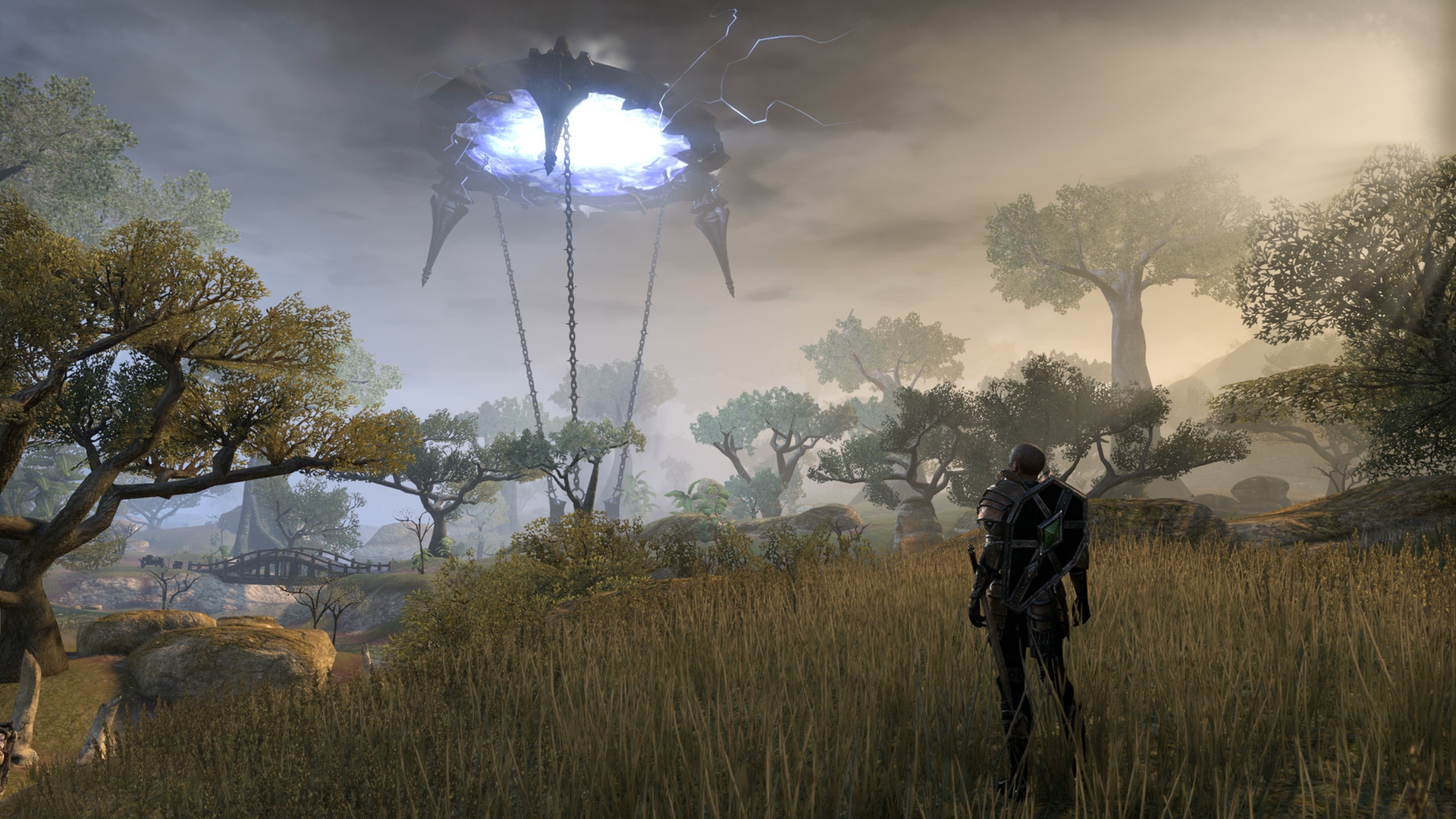
Still, some players are skeptical of the approach taken by the Bethesda team and its ardent fans." I use r/teslore frequently and even I don't approve of this," wrote Redditor Hermaeus Mora on the larger lore community shunning the concept of canon on /r/ElderScrolls. "It has to do with Kirkbride, many debate on whether or not the trial of vivec, C0DA and other stories he did are canon....even though they are clearly not." Others continue to question if The Elder Scrolls Online, which is developed by Zenimax Online Studios instead of Bethesda, is also truly canon (to that, the developers have already said yes).
But as far as Kirkbride is concerned, he's willing to accept these interpretations as legitimate if they are interesting enough. He shared that during Morrowind's development, the writers had a saying that "anything that was boring was automatically wrong."
"It was great as a dismissal of things, but it also raised the stakes, [forcing us to] get more imaginative, like 'I've not seen that before, bring that element in here, put some twist on them.' That's where the excitement comes from, and if it's exciting enough it becomes true," he said.
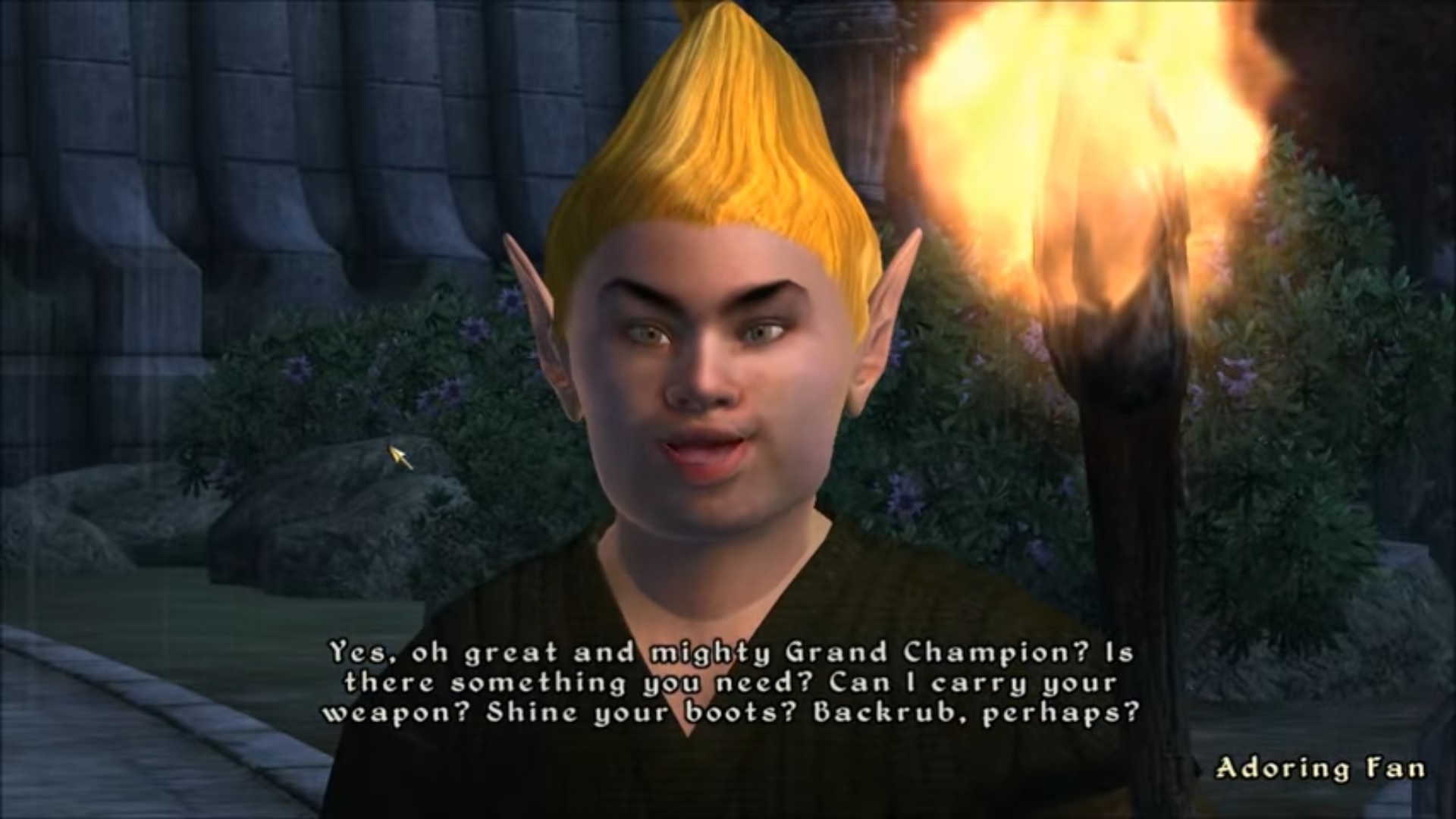
Even ignoring the fractured history and arguing scholars, with a backstory spanning centuries, it's impossible for the Elder Scrolls writers to fit in every detail—and these gaps in history are what the lore community is still trying to fill. Take for instance Redditor zackroot's frustration with the Mede Dynasty.
"I'm currently writing on this topic right now, but how are we all cool with the fact that there's almost 120 years where we don't know a single emperor in the Mede Dynasty? Y'all are over here talking about mantling gods and towers while I'm just wondering who was running the Empire for more than a friggin century!" By filling these gaps in The Elder Scrolls lore, the lore community believe that it's helping Bethesda and the developers decide how they can expand the history—and perhaps even its narrative—in future games.
One last anecdote sums up just how deep the lore community dives. There's a conversation surrounding the Adoring Fan from Oblivion on /r/teslore, and why he specifically exclaims, 'By Azura! By Azura! By Azura!"—the name of one of the 16 divine entities known as Daedric Princes—when he sees the player character. One reply to the Reddit thread: 'Azura is one of the 16 acceptable Blasphemes in Cyrodiil, so it is perfectly okay to thank Azura in a moment of excitement.' Another: 'But maybe he worships Azura?'"
Even how open to interpretation and easy to obsess over even the smallest stories in The Elder Scrolls are—and how more are still waiting to be discovered and redefined by fans of its lore.
Skyrim mods: Questing forever
Skyrim Special Edition mods: Special effects
Skyrim console commands: Endless possibilities


